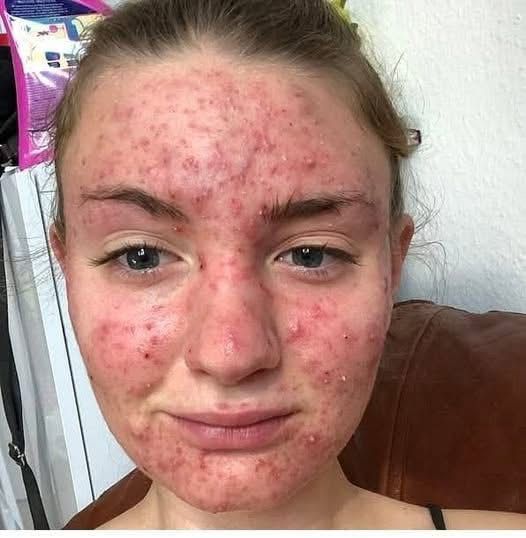At first, it seemed like nothing more than a simple allergy. Her body had begun to itch uncontrollably, red blotches appearing across the skin in angry clusters that looked like rashes. I thought it was something minor, perhaps a reaction to new laundry detergent or maybe a food sensitivity. These things happen all the time, and usually, a quick trip to the pharmacy, a couple of antihistamines, and some soothing creams are enough to fix the problem. That was my expectation. But as the days went on, the itching didn’t fade. It intensified. The redness spread wider, becoming more inflamed, and the restless nights grew unbearable. Watching her toss and turn in pain, unable to find even a moment of relief, filled me with dread.
We tried everything that made sense for what we thought was an allergy — cooling lotions, over-the-counter medicines, oatmeal baths, natural remedies whispered about in online forums. Nothing worked. Instead, the patches of redness seemed to deepen, the irritation growing worse until even the touch of a bedsheet against her skin made her flinch. The frustration in her eyes and the exhaustion in her voice became impossible to ignore. By then, I knew we had crossed a line from ordinary discomfort into something else entirely.
The moment we stepped into the doctor’s office, I expected reassurance. I thought he would glance at the skin, maybe prescribe stronger antihistamines, and send us home with promises that it would pass in a week or two. But instead, I watched the doctor’s expression change as he leaned closer, his eyes narrowing in focus. He asked quiet but precise questions: how long had this been happening, had there been fevers, weight loss, night sweats? His tone shifted from casual to clinical, the easy small talk replaced by brisk instructions to the nurse. He ordered blood tests, scans, and further examinations with an urgency that I wasn’t prepared for.
Sitting in that sterile white room, listening to the hurried footsteps of medical staff, a cold weight settled in my stomach. Something was wrong. Very wrong. The days that followed were a blur of waiting rooms, lab results, and hushed conversations just out of earshot. And then, at last, the diagnosis arrived. It wasn’t an allergy. It wasn’t something simple at all. It was cancer.
That single word shattered the fragile hope I had been clinging to. I felt the air rush out of me, as if the room had suddenly collapsed inward. The doctor spoke carefully, choosing his words with the kind of solemn gravity that comes from years of delivering devastating news. But I could barely hear him. My mind was stuck on that word — cancer — echoing endlessly, louder than anything else.
She sat in silence, her face pale, her hands clenched tightly in her lap. I wanted to be strong for her, to say something reassuring, to promise that everything would be fine. But the truth is, I was just as terrified. All those little moments when I brushed it off as “probably nothing” replayed in my mind, filling me with guilt. I had been so sure it was just an allergy, so certain there was no reason to worry. Now, looking at her frail frame under the harsh hospital lights, I realized how quickly life can turn upside down.
The days that followed were filled with more tests to determine the stage of the illness and the treatment options available. Chemotherapy was mentioned, along with radiation and targeted therapies. Each possibility came with its own risks and side effects, each one sounding harsher than the last. She listened quietly, nodding when the doctors spoke, while I scribbled notes and tried to keep track of the medical jargon. But in her eyes, I could see both fear and an almost defiant strength — as though she had already decided she would fight, no matter the odds.


